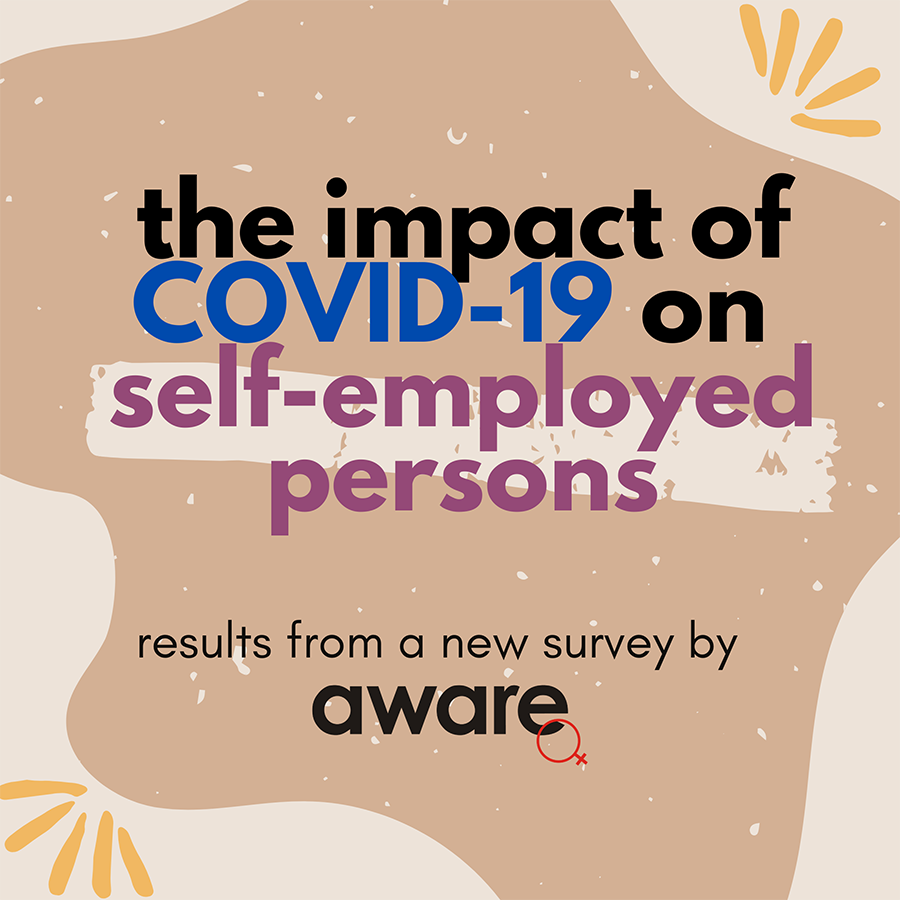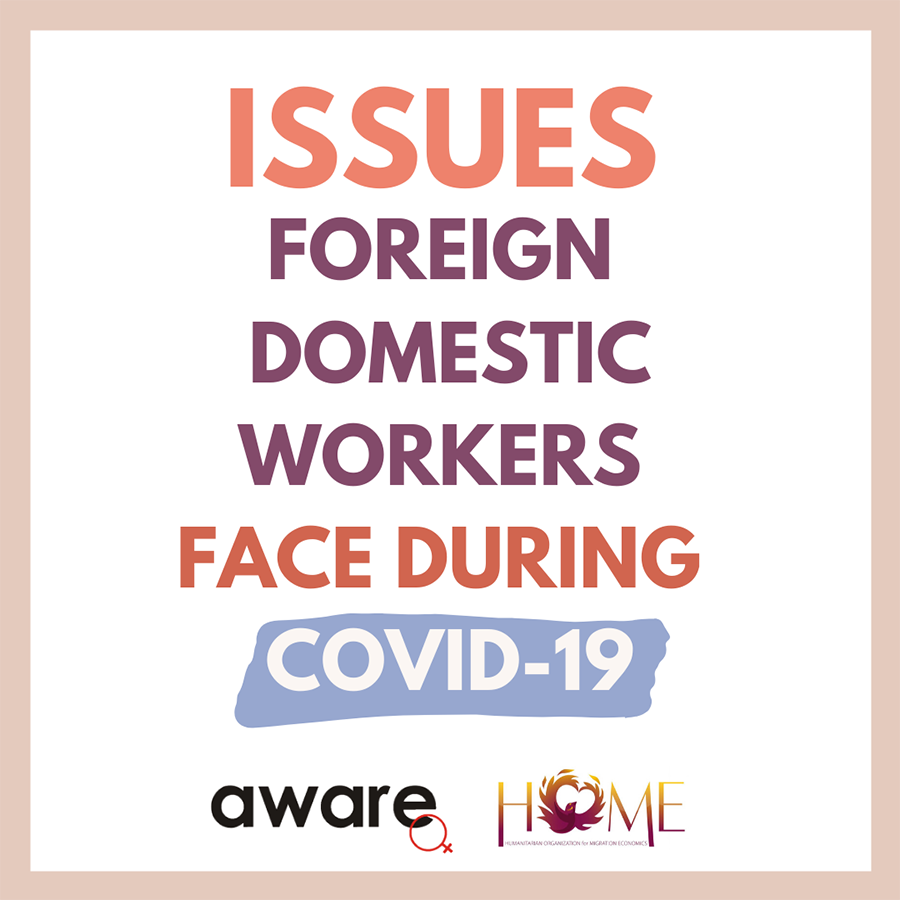Our COVID-19 Response
The COVID-19 pandemic meant that much of what we had envisioned for 2020 had to be shelved, and a new vision generated at lightning speed. This section looks at how AWARE’s advocacy and services rose to that challenge, amid uncertainty and a fluctuating work situation.
Pandemic-centred research
i) COVID-19 surveys
Early in the COVID-19 circuit breaker period, AWARE’s research team got to work conducting a series of surveys with more than 80 women from marginalised communities: migrant spouses, low-income self-employed persons, family caregivers (with partners from Singapore Alliance for Women in Ageing) and migrant domestic workers (with partner HOME). These surveys yielded quick, useful snapshots of how the pandemic had affected these communities—and allowed AWARE to provide timely data and relevant recommendations to the government, e.g. reducing the barriers for low-income self-employed persons to apply for the Self-Employment Persons Income Relief Scheme.
ii) Mind the Gap fund
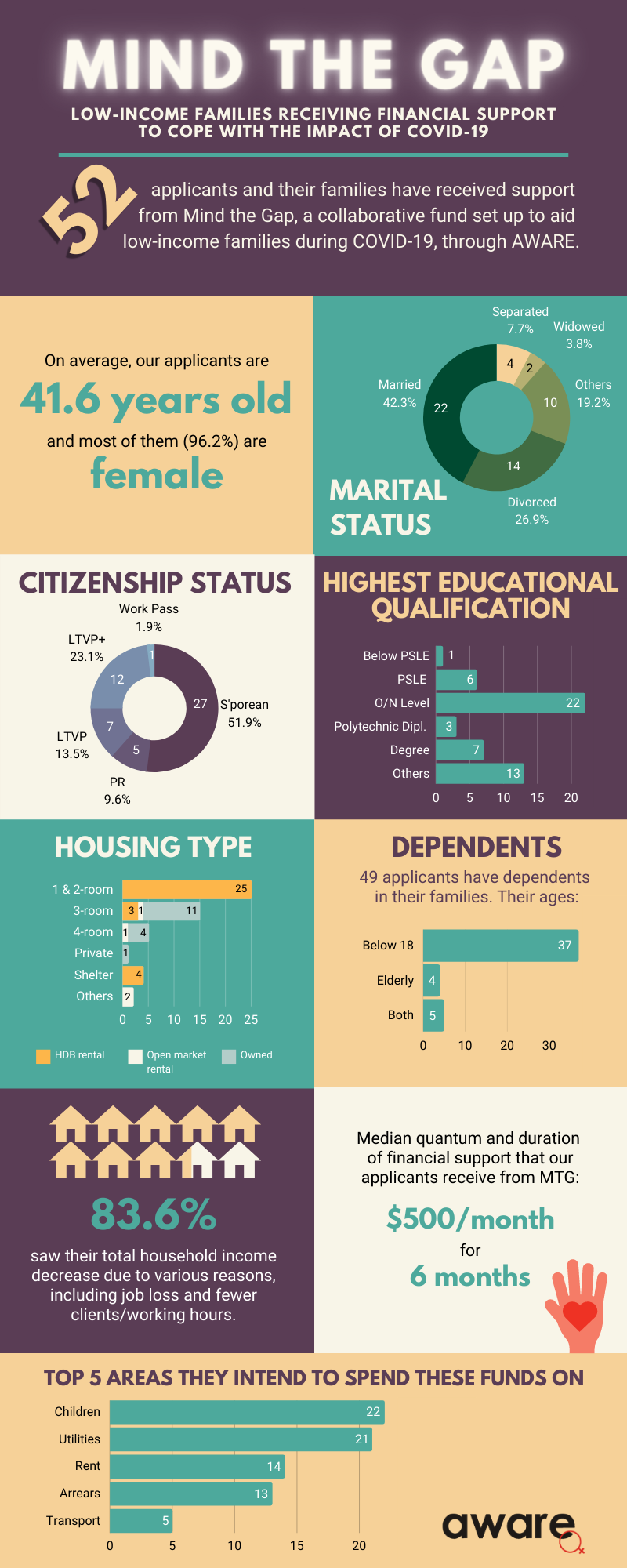
On a different tack, AWARE banded together with seven other organisations, such as A Good Space and Beyond Social Services, to launch the Mind the Gap (MTG) fund. The fund sought to help low-income families who had limited access to financial assistance from the government in the wake of the COVID-19 recession. With a successful Give.Asia campaign, MTG raised $1.12 million, which was disbursed to more than 700 families in all. Through the fund, AWARE supported 56 families by providing up to $500 monthly for six months.
Besides overseeing this disbursement, our researchers also collected data from these families for a longitudinal study on their economic recovery in this crisis. Based on the insights gleaned by supporting these families, we published a Straits Times Forum letter highlighting structural gaps in the social assistance system, contributing to ongoing conversations about crisis support for low-income families. Further analysis will be published in 2021.
Spike in domestic violence
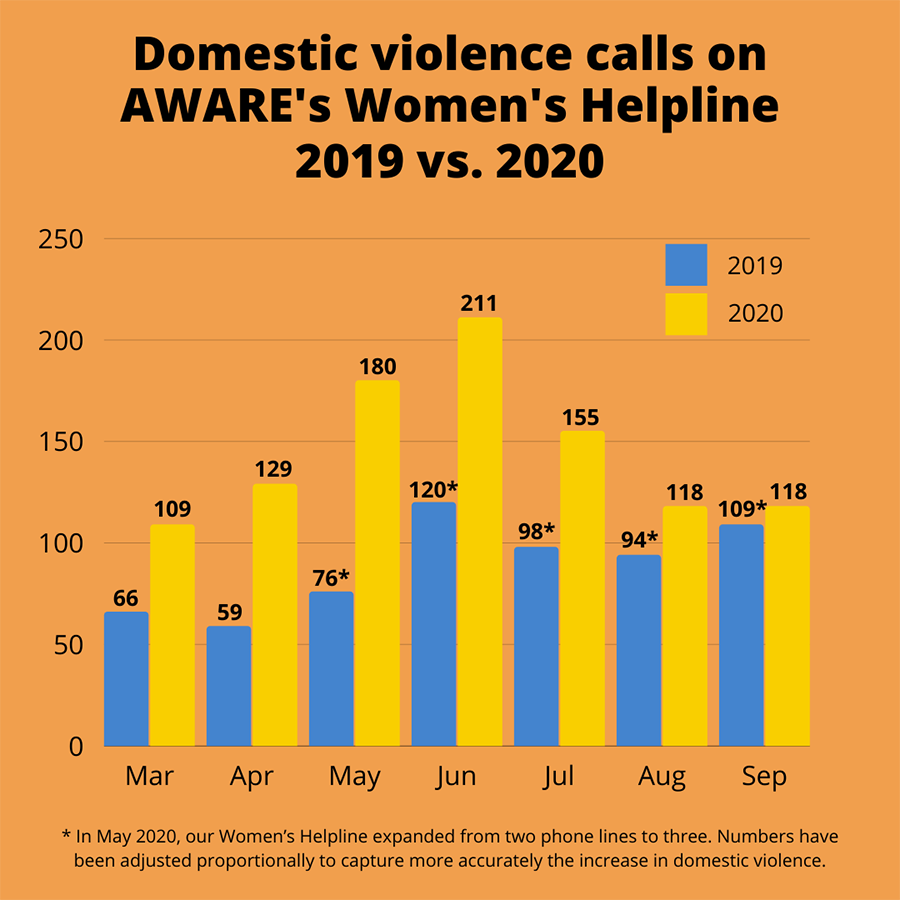
The COVID-19 pandemic brought a widespread spike in domestic violence around the world, demanding urgent attention and action. Singapore was no different: During our local circuit breaker, and even as the country began to open up, domestic violence calls to our Women’s Helpline surged.
i) Expanded Helpline services
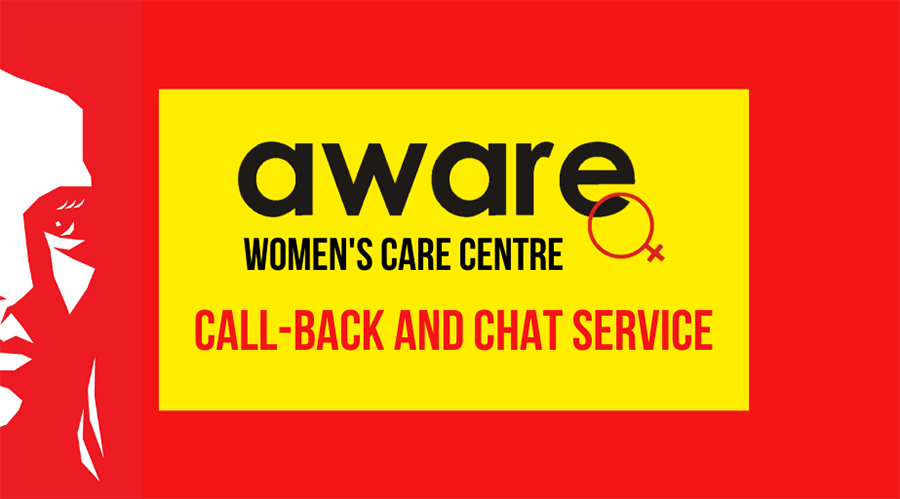
COVID-19 forced our CARE team to work remotely, switch to virtual service provision and add an extra eight operating hours (via an additional phone line) to the Women’s Helpline. In May 2020, the team also launched a new online chat service, recognising that some women in dire need of support were in fact unable to make a phone call to the available hotlines. Over the rest of the year, 180 clients engaged with the Women’s Care Centre over the chat.
ii) Public outreach and education
We also partnered with advertising agency Forsman & Bodenfors to reach new demographics via an innovative campaign called “ShopForHelp”, whereby information about AWARE’s Helpline was disguised as an e-commerce promotion on Love, Bonito. In the last quarter of 2020, after ShopForHelp launched, 18% of all scheduled chat sessions were referred to AWARE via ShopForHelp.
iii) Talk series on domestic violence and divorce
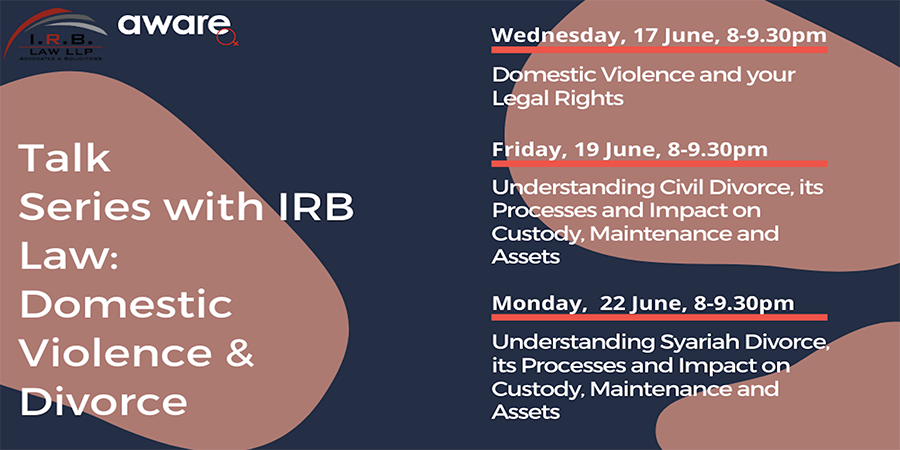
With increasing reports and attention on domestic violence, we hosted a series of online talks in collaboration with IRB Law, a Singapore-based law firm, on 17, 19 and 22 June. The sessions covered domestic violence and pertinent legal rights, civil divorce and Syariah divorce. With almost 300 participants attending the sessions in all, the IRB Law series was a hit. While many attendees were individuals seeking advice for their personal situations, a number were social workers wanting to learn more about domestic violence and divorce legal procedures. The speakers (Muntaz Zainuddin, Nur Izyan, Ameera Bajrai, Nureliza Syahidain, Norhakim Shah, Amalina Saparin and Abdul Aziz) answered questions about custody, grounds for divorce, court order variations and more.
One attendee praised the “willingness of the speakers to engage and help participants gain deeper insight”. Another commented: “The speakers were well-informed and were able to share advice and points from their personal experiences with cases.”
